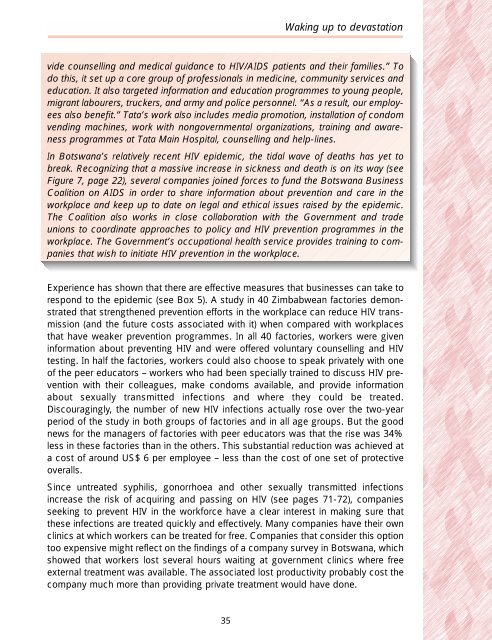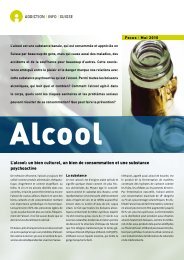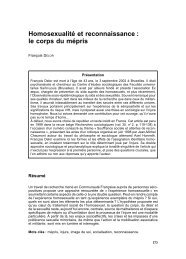Care and support for people living with HIV/AIDS
Care and support for people living with HIV/AIDS
Care and support for people living with HIV/AIDS
You also want an ePaper? Increase the reach of your titles
YUMPU automatically turns print PDFs into web optimized ePapers that Google loves.
Waking up to devastationvide counselling <strong>and</strong> medical guidance to <strong>HIV</strong>/<strong>AIDS</strong> patients <strong>and</strong> their families.” Todo this, it set up a core group of professionals in medicine, community services <strong>and</strong>education. It also targeted in<strong>for</strong>mation <strong>and</strong> education programmes to young <strong>people</strong>,migrant labourers, truckers, <strong>and</strong> army <strong>and</strong> police personnel. “As a result, our employeesalso benefit.” Tata’s work also includes media promotion, installation of condomvending machines, work <strong>with</strong> nongovernmental organizations, training <strong>and</strong> awarenessprogrammes at Tata Main Hospital, counselling <strong>and</strong> help-lines.In Botswana’s relatively recent <strong>HIV</strong> epidemic, the tidal wave of deaths has yet tobreak. Recognizing that a massive increase in sickness <strong>and</strong> death is on its way (seeFigure 7, page 22), several companies joined <strong>for</strong>ces to fund the Botswana BusinessCoalition on <strong>AIDS</strong> in order to share in<strong>for</strong>mation about prevention <strong>and</strong> care in theworkplace <strong>and</strong> keep up to date on legal <strong>and</strong> ethical issues raised by the epidemic.The Coalition also works in close collaboration <strong>with</strong> the Government <strong>and</strong> tradeunions to coordinate approaches to policy <strong>and</strong> <strong>HIV</strong> prevention programmes in theworkplace. The Government’s occupational health service provides training to companiesthat wish to initiate <strong>HIV</strong> prevention in the workplace.Experience has shown that there are effective measures that businesses can take torespond to the epidemic (see Box 5). A study in 40 Zimbabwean factories demonstratedthat strengthened prevention ef<strong>for</strong>ts in the workplace can reduce <strong>HIV</strong> transmission(<strong>and</strong> the future costs associated <strong>with</strong> it) when compared <strong>with</strong> workplacesthat have weaker prevention programmes. In all 40 factories, workers were givenin<strong>for</strong>mation about preventing <strong>HIV</strong> <strong>and</strong> were offered voluntary counselling <strong>and</strong> <strong>HIV</strong>testing. In half the factories, workers could also choose to speak privately <strong>with</strong> oneof the peer educators – workers who had been specially trained to discuss <strong>HIV</strong> prevention<strong>with</strong> their colleagues, make condoms available, <strong>and</strong> provide in<strong>for</strong>mationabout sexually transmitted infections <strong>and</strong> where they could be treated.Discouragingly, the number of new <strong>HIV</strong> infections actually rose over the two-yearperiod of the study in both groups of factories <strong>and</strong> in all age groups. But the goodnews <strong>for</strong> the managers of factories <strong>with</strong> peer educators was that the rise was 34%less in these factories than in the others. This substantial reduction was achieved ata cost of around US$ 6 per employee – less than the cost of one set of protectiveoveralls.Since untreated syphilis, gonorrhoea <strong>and</strong> other sexually transmitted infectionsincrease the risk of acquiring <strong>and</strong> passing on <strong>HIV</strong> (see pages 71-72), companiesseeking to prevent <strong>HIV</strong> in the work<strong>for</strong>ce have a clear interest in making sure thatthese infections are treated quickly <strong>and</strong> effectively. Many companies have their ownclinics at which workers can be treated <strong>for</strong> free. Companies that consider this optiontoo expensive might reflect on the findings of a company survey in Botswana, whichshowed that workers lost several hours waiting at government clinics where freeexternal treatment was available. The associated lost productivity probably cost thecompany much more than providing private treatment would have done.35











